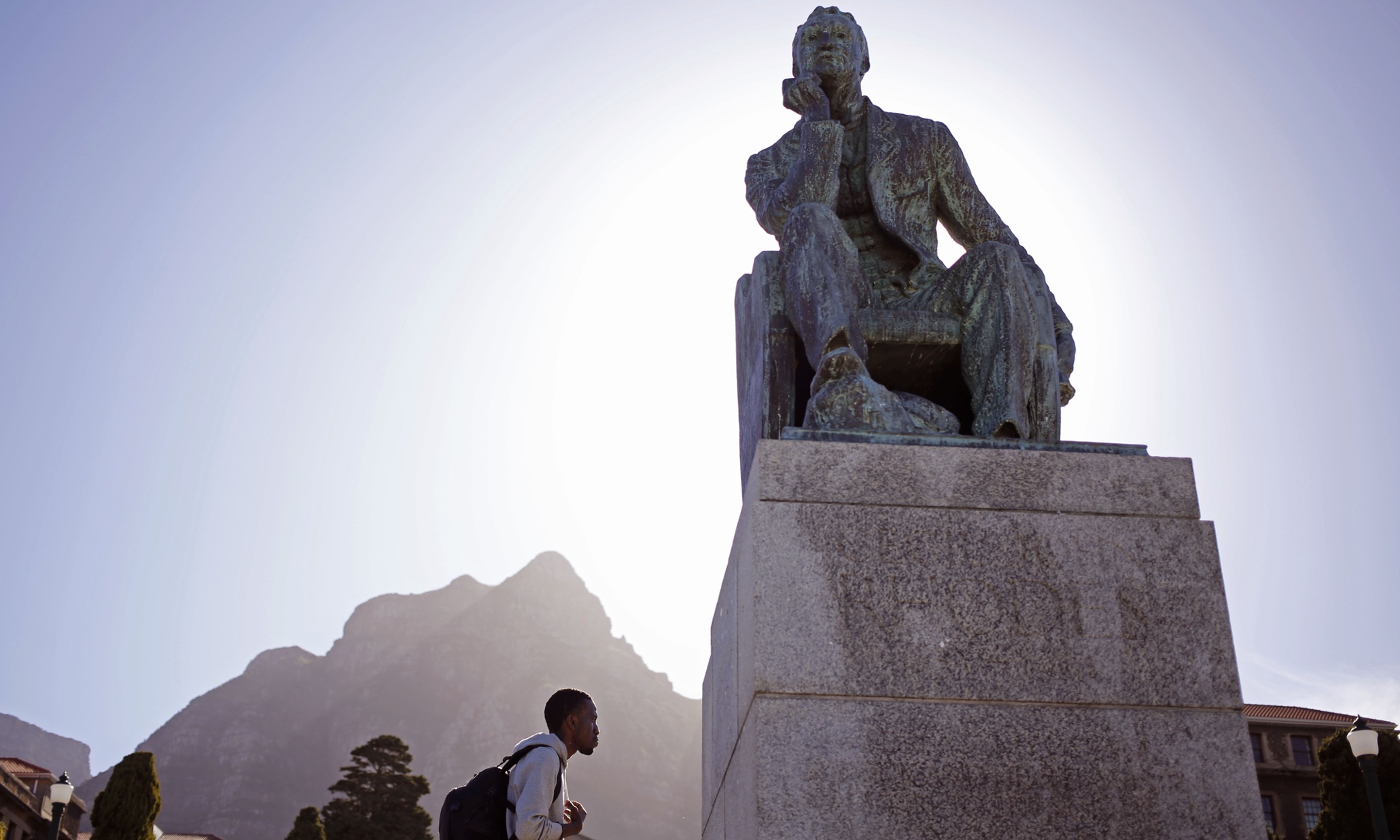As the debate surrounding the Cecil John Rhodes statue at University of Cape Town (UCT) heats up, a research fellow at the Helen Suzman Foundation and former Rhodes scholarship recipient has recommended the statue be reclaimed, and made more reflective of the controversial figure’s history.
The statue, the subject of student protests on campus, has brought about questions over transformation as well as the true legacy left behind by Rhodes. UCT students have demanded its immediate removal, describing it as a symbol and representation of the country’s colonial past. The protests stem from an incident over two weeks ago, in which a group of rogue students doused the statue in human excrement.
According to Kameel Premhid, the controversy around the statue was indicative of the general frustration amongst South Africans of colour, still unhappy that true transformation was yet to occur. This made the Rhodes statue a target of that frustration.
“I think the deeper cause is addressing the historical imbalances which have affected South African society, not since the national party won its election, but even before that with our colonial history. We must not forget that Apartheid as a collective system of white Afrikaner privilege was built upon a previous system of white English privilege,” he said.
He divided the issue of transformation into short term immediate change, as well as long term systematic changes. In terms of the latter, he said the area of education remained amongst the most brutal systems of the current society.
“If you happen to be born black and to parents who live in a township for example, your opportunities to access world class education unlike your white counterparts born in Sandton are minimal,” he stated.
Another sign of this transformation issue has been the high numbers of people now gaining access to the countries universities, as a result of the lowering of educational standards and requirements in a bid to redress the setbacks brought about by the Apartheid regime. Premhid said that this ‘artificial tinkering’ in the education system, meant that many universities were unable to cope with such an influx of students.
“As a long term exercise, increasing the numbers of people going to university hasn’t actually made the kind of impact that we are talking about. We are finding that those black students are getting horrible education at the schools to which they attend, so when they go to the university level they are pushed out because they are not prepared adequately enough,” he explained.
Relating this to the Rhodes debacle, he suggested this urgent push for transformation was proving detrimental all round, and further stoking frustrations amongst students.
Premhid said the particular issue of the statue was more its positioning and presentation, which came across in an extremely uncritical way. For those visiting the UCT campus without prior knowledge of Rhodes background, they would be led to assume that the former prime minister of the Cape Colony had done great and positive things.
“Removing the statue would be a clear indication that his legacy for South Africa was problematic…but personally, I don’t think the statue should be removed, because it should serve as a symbol of how far we still need to go in order to reclaim and reverse the legacy that he left behind,” he said.
“The statue could be reclaimed, in order to be more reflective of Rhodes legacy and history.” VOC (Mubeen Banderker)






 WhatsApp us
WhatsApp us 

